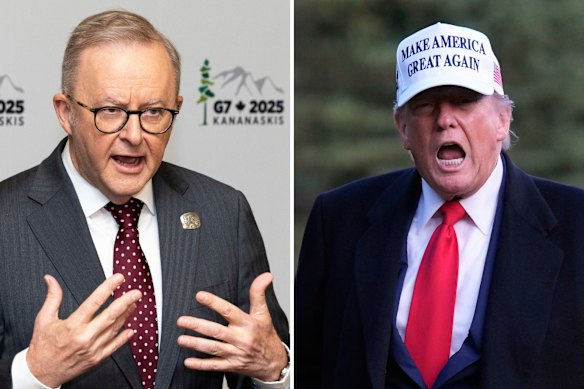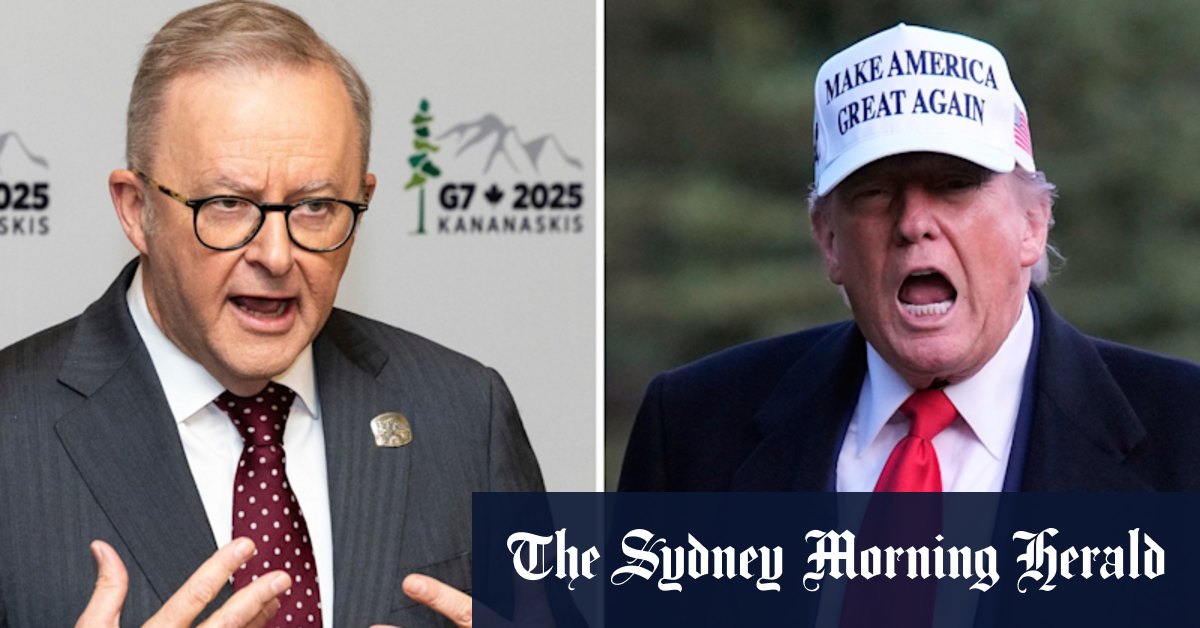The federal government has lifted its longstanding de facto ban on US beef, addressing one of the key trade complaints that President Donald Trump used to justify his tariffs on Australia but starting a potential fight with farmers and biosecurity experts.
Since 2019, Australia has allowed US beef into the country but had concerns about cattle born in Mexico and Canada that was slaughtered in America, resulting in no beef coming from the US to Australia because supply chains are largely integrated between the countries.

Anthony Albanese has said Australia would not compromise on biosecurity while Donald Trump demanded access to Australia for US beef.Credit: Alex Ellinghausen, AP
This masthead revealed last month that the Albanese government was considering lifting the restrictions on US access to Australia’s beef market via biosecurity review amid trade talks between the two countries over Trump’s 10 per cent import tariff.
Employment Minister Amanda Rishworth confirmed the move to lift the de facto ban on Thursday morning, saying it was the product of a biosecurity review that has been underway for more than a decade.
“That review has been undertaken and the Department of Agriculture, Fisheries and Forestry believe that there are the right controls in place in the US to lift that ban,” Rishworth said on Today. “My understanding is that [ban] has been will be lifted as a result of a decades long review.”
Trump and his commerce secretary have sharply criticised Australia’s rules on beef imports, which were designed to keep Australia free of diseases found in cattle overseas.
“Our farmers are blocked from selling almost anywhere … Australia won’t let us sell beef,” US Commerce Secretary Howard Lutnick said in April.
Experts, including former inspector-general of biosecurity Helen Scott-Orr, told this masthead in April that Australia’s disease-free status depended on strict biosecurity protocols.
“We do not use them [biosecurity protocols] as non-tariff trade barriers. When other countries query our biosecurity requirements, we have to justify them and show that we are applying proper controls to allow trade to all those countries to continue,” Scott-Orr said.
